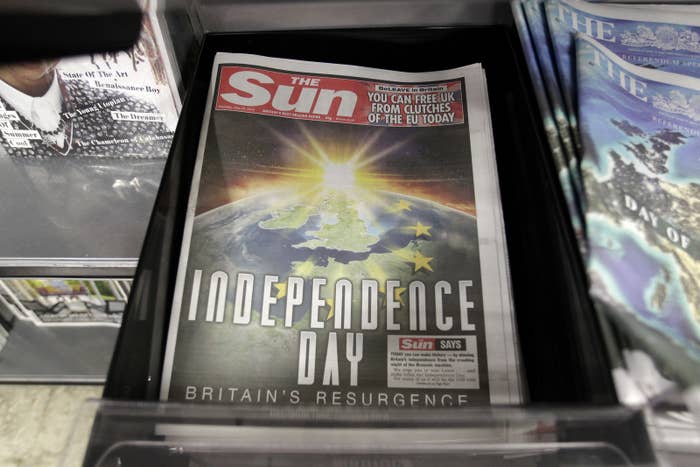
WASHINGTON/ISTANBUL — Security officials and experts said in the wake of the Brexit vote that they did not expect intelligence cooperation between the U.S. and its transatlantic partners to shift fundamentally, but expressed fears that tussles over Britain’s exit from the European Union could distract key resources needed to keep member states safe in the midst of a fierce security threat from ISIS and its supporters.
"It's a disaster for the bureaucrats. Resolving many of the issues will be a waste of time on the higher levels that could be put to better use,” one official in the French defense ministry, who works in intelligence and research, told BuzzFeed News. “Ministers and other top officials will be forced to deal with issues related to the U.K. instead of talking about things that matter, like terrorism, intelligence sharing, and even economic security issues that are less sexy but probably more important."
Intelligence sharing and multinational efforts to combat transnational terrorism, particularly the threat from ISIS and security concerns about the arrival of nearly a million refugees in the past 18 months, have made cooperation among European nations and the United States a crucial concern, but intelligence professionals downplayed an immediate risk from the U.K. decision. Multiple intelligence and law enforcement officials in both Europe and the U.S. said that intelligence cooperation usually happens through direct intelligence agency relationships, commonly via embedded liaisons.
“The CIA and MI6 have people in our offices,” the French official said, describing those longstanding security arrangements as “unrelated to the EU.”
Another European law enforcement official, who cannot be named because he frequently works undercover in the Middle East, agreed that the immediate impact from the U.K. results would be minimal.
“I love visa-free travel in Europe,” he joked before dismissing any notion intelligence and law enforcement would be negatively affected. “The Brits are good,” he said, describing the situation as more connected to the NATO military and security relationships that far predate the EU.
Though there are no specific intelligence-sharing requirements for NATO membership, it remains the primary security apparatus for the Western world, regardless of Britain’s status in the EU, and none of the sources BuzzFeed News spoke with expected the Brexit to have any long-term effect on NATO. What remains to be seen is how Britain’s role in the alliance will change — as a formal exit approaches, the U.K.’s focus will be on itself, not its NATO allies.
“It could have a knock for the NATO alliance, in the sense that, for the next little while, Britain’s going to have to turn inward a little bit. It’s going to have to focus on itself,” Rachel Rizzo, a NATO and EU researcher at the Center for New American Security in Washington, D.C., said. “[Britain]’s not going to lose its spot. It could lose its sway a little bit.”
The U.K. is also the only European partner in the Five Eyes intelligence-sharing accord, a postwar-era security establishment that creates intelligence-sharing channels between the U.S., U.K., Australia, Canada, and New Zealand.
None of the researchers BuzzFeed News talked with expressed concern that the Five Eyes accord would be affected. But even the Five Eyes channel is often secondary to direct, bilateral counterterror relationships. The U.K.’s status in the EU is not expected to seriously alter the way the U.S. shares information with either, and further, experts and U.S. officials told BuzzFeed News that Britain’s vote to leave isn’t expected to impact how it shares information with European partners.
“Strictly from the U.S. perspective, it’s the bilateral relationship channels that are important here,” Heather Conley, director of the European program at the Center for Strategic and International Studies, a D.C.-based think tank, said. “I don’t think the EU per se is going to lose anything in intelligence. I’m very confident that ... if there’s a pressing intelligence-gathering mechanism that would portend some sort of terror attack, the U.K. would share that bilaterally with the French, with the Belgians, and that would not necessarily be impacted by the decision to leave.”
The intelligence community, the Pentagon, and the State Department said the Brexit will not impact the longstanding security relationship between Washington and London.
“The partnership between the United States and the United Kingdom on counterterrorism and other national security issues remains strong and will continue unabated," Timothy Barrett, a spokesman for the Director of National Intelligence’s office in Washington, told BuzzFeed News.

